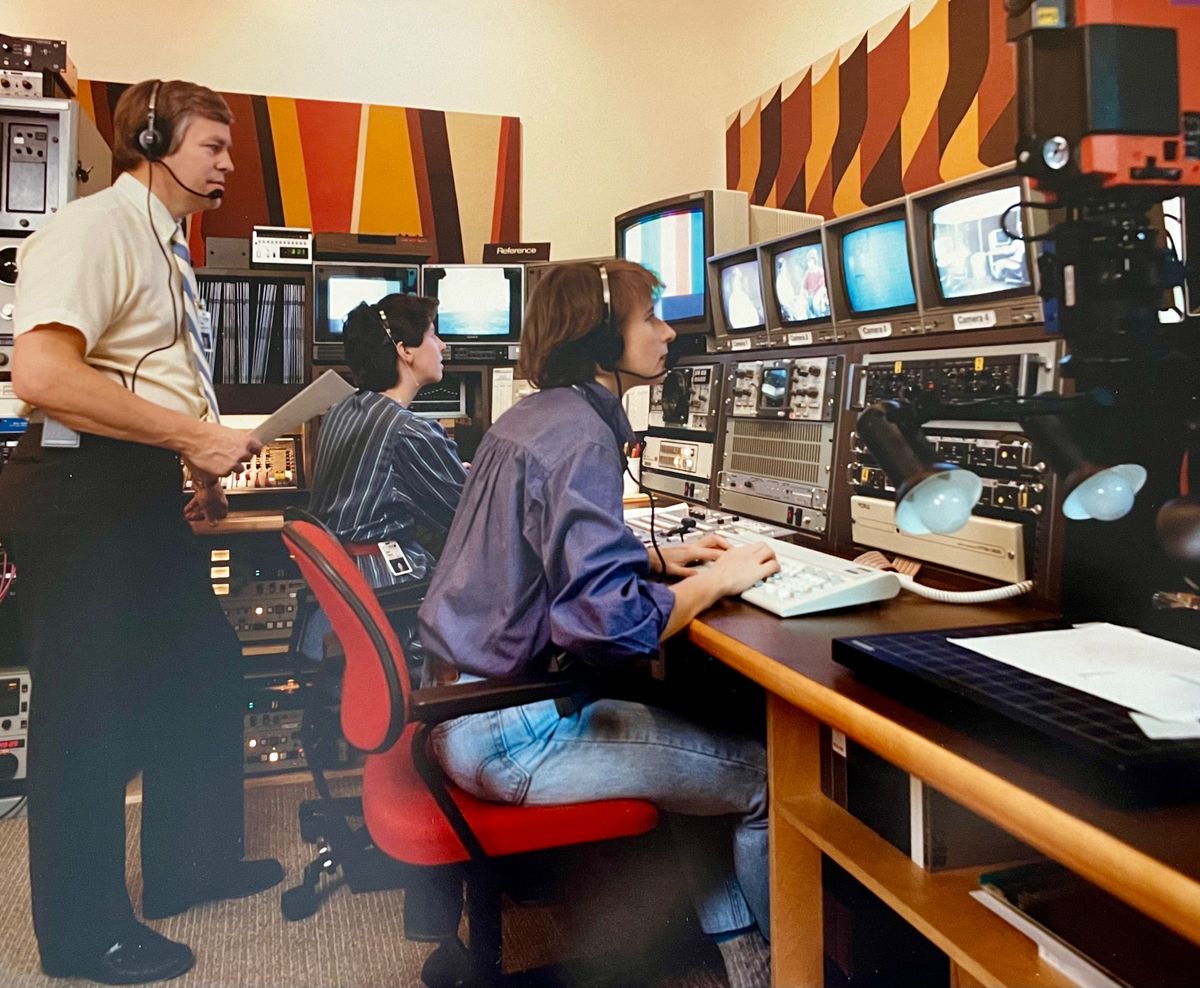When I was 28, I quit what many called a "dream job".
I was a video production specialist at BNR, the research arm of Nortel. I wrote, directed, produced and edited training and marketing videos for what was one of the world's tech giants. I made good money, had full benefits, a generous pension and access to a vast network of social activities. While I was there, I played softball, volleyball, basketball and soccer - all paid for by the company. We even had our own regional summer and winter Olympics with other locations. I met my (ex)husband there and made lifelong friends.
So why did I quit? I realized that I didn't belong. The year before, I'd taken leave to go work with the TV crew at the Calgary Olympics. And it was amazing, filled with talented, passionate people. Coming back, it hit me how conservative and constrained my work culture was.
While everyone on the tech side of the business got to be wildly creative, I worked in corporate services, ruled by bean counters. They discouraged trying anything new. And forced us to justify our existence every day. That made my bosses risk averse and left me feeling like a second-class citizen, somehow "less than" those who worked on the technology.
At the time, I was still trying to find myself, and figure out my identity. Being crushed by corporate culture wasn't helping. So I left. Then a funny thing happened.
When I started to look for work, employers would ask me what I do. "Everything", I answered. I could write, shoot, edit, direct - whatever they needed. But that stumped them. They needed me to choose a specific identity so they could understand how I fit into their operations. Rather than recognizing me as a creative talent who could be trained to do anything, they'd only hire me for an existing skill.
Frustrated, I decided to play along, declaring that I was a writer/director (the youngest in town). And immediately started to get work.
It wasn't until years later when I became a coach that I started to appreciate the value of what I'd done. I didn't wait for an "expert" to tell me I was ready to be a director. I decided that was who I was going to be from that moment on and simply became it. I chose the identity I wanted, then brought it to life. And nobody questioned me.
So many of my coaching clients these days come to me wanting to be a different person – to have a different job or behave differently. They think there's a magical series of hoops they have to jump through to get there. And if you want to be a doctor or electrician, that's true. But most of the time, the stories they tell themselves are the only thing holding them back. The reality is that you can choose to be someone different right now.
As I watch employers scramble to attract and retain talent these days, I see them focusing on things like work-life balance and benefits. But, as my story shows, those things alone are not enough. If you truly want to engage your people, you need to invest in getting to know who they really want to be – and make sure you create a culture that helps them do it. Along the way, you might want to take some time to explore your own identity. Are you happy with who you are? If not, what's stopping you from making a change?





